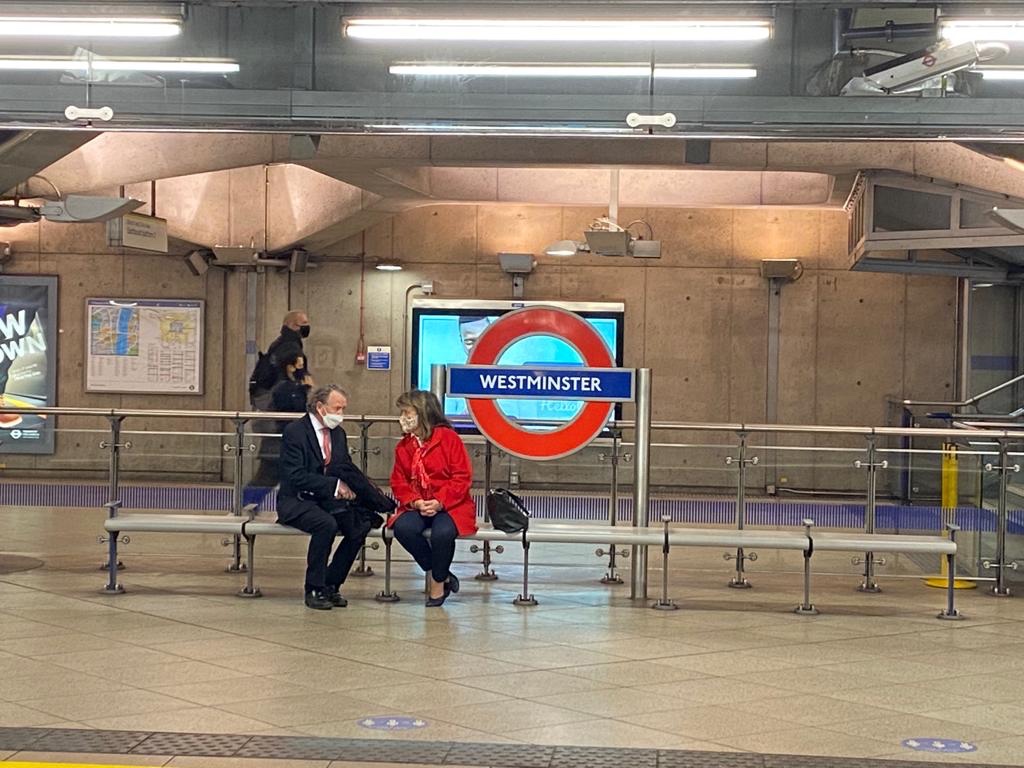Opinion The Guardian

Baroness Kennedy says “I’ve been sanctioned by China – but that won’t stop me speaking out over Xinjiang”
I’ve been sanctioned by China – but that won’t stop me speaking out over Xinjiang
The evidence is clear: a genocide against the Uighurs is in progress. Britain must not put trade before human rights
It came as no surprise to me that I have been included on the list of those sanctioned by the Chinese government for vocal criticisms of the human rights abuses towards Uighur Muslims in Xinjiang province. China is not big on freedom of speech.
In the “tit-for-tat game that is part of foreign relations, this action is of little consequence. On a personal level, I will be sad not to visit China again, as I have great admiration for many Chinese academics and human rights advocates with whom I have had contact. However, I have no assets to freeze, no investments and no secret property, and my legal work seeking to protect human rights will go on as before.
As a lawyer, my position on China’s conduct is evidence-based. We have all seen the clear aggression against the pro-democracy movement in Hong Kong. I fear for close lawyer friends there, such as Martin Leeand Margaret Ng, who are in peril because of their courageous protection of the rule of law.
On the egregious crimes against the Uighur, I have heard directly the testimonies of those who have suffered, especially exiled women who have been sexually abused and raped, sterilised or forced to terminate pregnancies. Some have been separated from children, who are sent to remand homes to be deracinated – denied their religion and culture. I have seen the aerial photographs showing the destruction of mosques and burial grounds. I have heard from well-connected academics of forced labour, of the large numbers held in re-education camps and the coerced movement of villagers to work in other parts of China.
International lawyers are currently debating whether the available evidence amounts to genocide. But to my mind the evidential pointers are clear: a genocide is indeed in progress. The genocide convention requires signatory nations in order to prevent genocide, not to merely wring our hands about it when it is over.
China is as a dominant power in our world. It is taking a lead on climate change, which is to be admired. And its belt-and-road policy has seen it offer strong infrastructure assistance to developing countries in parts of Asia, Africa and elsewhere. The downside of this strategic support is that the indebtedness of less powerful countries is reflected in the support China is able to enjoy at the UN.
Because of its economic muscle, China is able to go about its business in the world untroubled by the consequences of its crimes. The desire for good trading relations is a great silencer, and even majority-Muslim nations have often failed to denounce what is happening to their co-religionists in Xinjiang. I do not want to see a return to cold war politics, but the consensus that was created after the second world war around a rules-based order is now under constant threat. The values that informed the Universal Declaration of Human Rights and all the subsequent international conventions are being trashed.China has detained my young children. I don’t know if I’ll ever see them againMihriban KaderRead more
When challenged, the UK government says that only a designated court should decide whether China is committing genocide. What it means by this is that nations against which such an allegation is made normally go before the international court of justice. Individuals who have authored such crimes are brought before the international criminal court.
Indeed it is right that courts are the best place for such serious determinations. But in this instance, it is a catch-22: China entered a “reservation” with regard to the jurisdiction of the international court of justice, which means it will not accept its authority on matters such as genocide. As for the international criminal court, China was not a signatory of the Rome statute which created that court.
That leaves us with no international court to determine the issue, which is why the Crossbench peer David Alton and I pushed hard in the House of Lords for the creation of a procedure that would have enabled the English high court to make a determination on whether the evidence reached the threshold for genocide.
Since that effort was defeated, we are pressing for the creation of a House of Lords committee of former senior judges to conduct such an assessment of the evidence on behalf of government.
This comes, of course, just as the leaders of “global Britain” eye opportunities for new trade negotiations. But there should be no letup in shaming China for what is happening, and the UK should be clear and forceful. Human rights must come before trade.
- Helena Kennedy QC is a Labour peer

